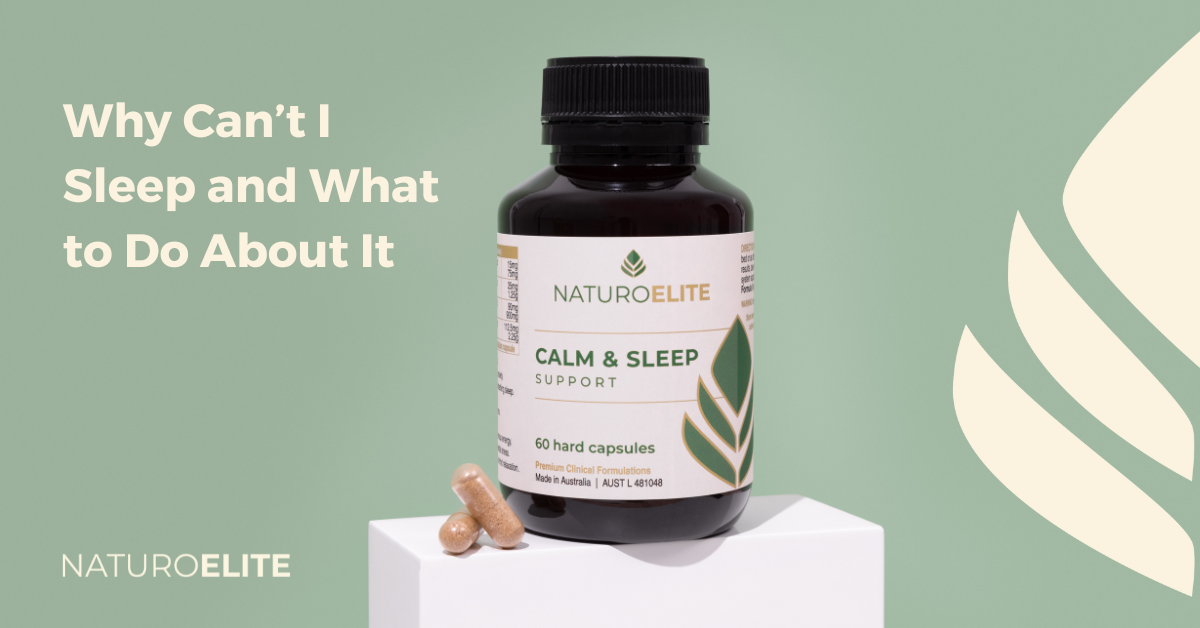There are many reasons why some people struggle to sleep. Common contributors include high stress levels and excessive caffeine intake. External factors such as light and noise, as well as certain health conditions, can also disrupt rest. Hormonal change, including those linked to menopause or PMS, alongside alcohol consumption, jet lag, and shift work, further impact sleep quality.
Stress can be triggered by a variety of factors, including hormonal fluctuations, physical disturbances, emotional challenges, and underlying health issues. When stress hormones such as cortisol increase, the HPA axis (hypothalamic-pituitary-adrenal axis) becomes activated.
This activation can lead to night-time waking and poor sleep quality. Over time, chronic stress may contribute to long-term sleep difficulties. The relationship is bidirectional, as poor sleep itself can disrupt the HPA axis, leaving individuals more vulnerable to both physical and mental stress throughout the day.
Menopause in particular, can significantly impair women’s sleep quality and is a common reason they seek medical support. Hormonal medications are often prescribed, but these can cause side effects such as headaches, nausea, and breast tenderness. For many women, these unwanted effects lead them to explore complementary therapies as alternative options for managing sleep disturbances.
Sleep Deprivation
Sleep deprivation can occur when we are not getting enough sleep, or the quality of sleep is not sufficient. Some signs of sleep deprivation include fatigue, poor concentration, mood changes and daytime sleepiness. Sleep deprivation can increase the risk of various health concerns including metabolic conditions like diabetes, obesity and cardiovascular disease. Sleep deprivation can also impact women’s hormonal health and worsen symptoms of both PMS and menopause.
Sleep Paralysis
Some people experience additional sleep disturbances such as sleep paralysis. Sleep paralysis is where we begin to regain consciousness while muscle atonia of rapid eye movement (REM) sleep is maintained. This can cause the experience of being unable to move or talk temporarily whilst falling asleep or when we are waking up. This can be quite uncomfortable and scary for people to experience.
Sleeping Tablets
Doctors may prescribe sleeping tablets for people who struggle to fall asleep or stay asleep. These medications are usually recommended only for short-term relief.
Sleeping tablets may have side effects such as dizziness, headaches and nausea. As well as loose stools and/or excessive grogginess/sleepiness on waking. Therefore many people look to alternative solutions and tools to improve their sleep.
Use of sleeping medication may be associated with increased fall risk in elderly people. Other risks may include increased risk of motor vehicle accidents and worsening of some conditions such as restless leg syndrome. Sleeping medication use can cause a reduction in overall functioning and quality of life in some people.
Sleep Meditation
Sleep meditation is a simple lifestyle practice that can better support rest. It may help people fall asleep more quickly, stay asleep for longer and enjoy deeper, higher quality sleep. As a safe, accessible and affordable tool, sleep meditation can be especially beneficial for those who struggle with ongoing sleep difficulties.
Sleep Music
Sleep music can be another accessible lifestyle tool for people that can’t sleep. Sleep music has been shown to increase feelings of relaxation. It has also been shown to help reduce depressive symptoms associated with sleep deprivation, as well as improve sleep quality.
Herbs for Sleep
Withania has been shown to help improve both the quantity and quality of sleep. while also enhancing concentration and reducing anxiety. Withania is also known to reduce inflammation in the body and strengthen the immune system.
Chamomile can help increase sleep quality in both the elderly and children. Chamomile helps to bring a sense of calmness and has a mild sedative effect by acting on benzodiazepine receptors in the brain. Chamomile is also useful for other problems such as wound healing and digestive issues caused by stress.
Passionflower has a sedative action. It has been shown to increase total sleep amount and slow wave sleep while reducing wakefulness. Passionflower may assist in increasing motivation, motor function and has also been observed to benefit memory loss and degenerative brain diseases in people with chronic sleep issues. This herb also assists in mood disorders such as anxiety and depression.
Saffron has been shown to improve sleep onset, maintenance and duration in people with sleep difficulties, particularly when mild anxiety is also present. Saffron also has other health benefits such as helping to reduce mood changes and severity of menopausal symptoms or premenstrual syndrome (PMS).
Valerian may help increase deep sleep and reduce anxiety, including anxiety associated with PMS. Valerian can also be helpful in reducing menopausal symptoms such as hot flushes.
Hops may improve sleep by enhancing GABA activity and calming the central nervous system. Hops can increase oestrogen levels which may help reduce symptoms associated with low levels of oestrogen in menopause. These symptoms may include hot flushes, night sweats, poor sleep and fatigue. Hops is only recommended for short term use for women with high oestrogen levels.
Zizyphus has sleep-inducing effects through the GABA pathway in the brain. Zizyphus has been shown to increase sleep quality in post-menopausal women. Zizyphus was shown to have minimal side effects, therefore can be considered as a valid option for post-menopausal women that suffer from sleep disturbances.
If you can’t sleep and you aren’t sure what you can do about it, there are various natural therapies that you can try. There are natural therapies to help assist you to have a better sleep.
Whilst, sleeping tablets may be recommended to help treat sleep disturbances. They may come with unpleasant side effects for some people and therefore many people are looking to complementary therapies.
Sleep meditation and sleep music can be incorporated into your daily routine. For promoting sleep and relaxation and are both safe and accessible for long term use. There are also other complementary therapies to help treat poor sleep.
Such as specific herbal medicines that can enhance sleep and sleep deprivation symptoms. You may discuss with your healthcare provider to explore what works for you.





